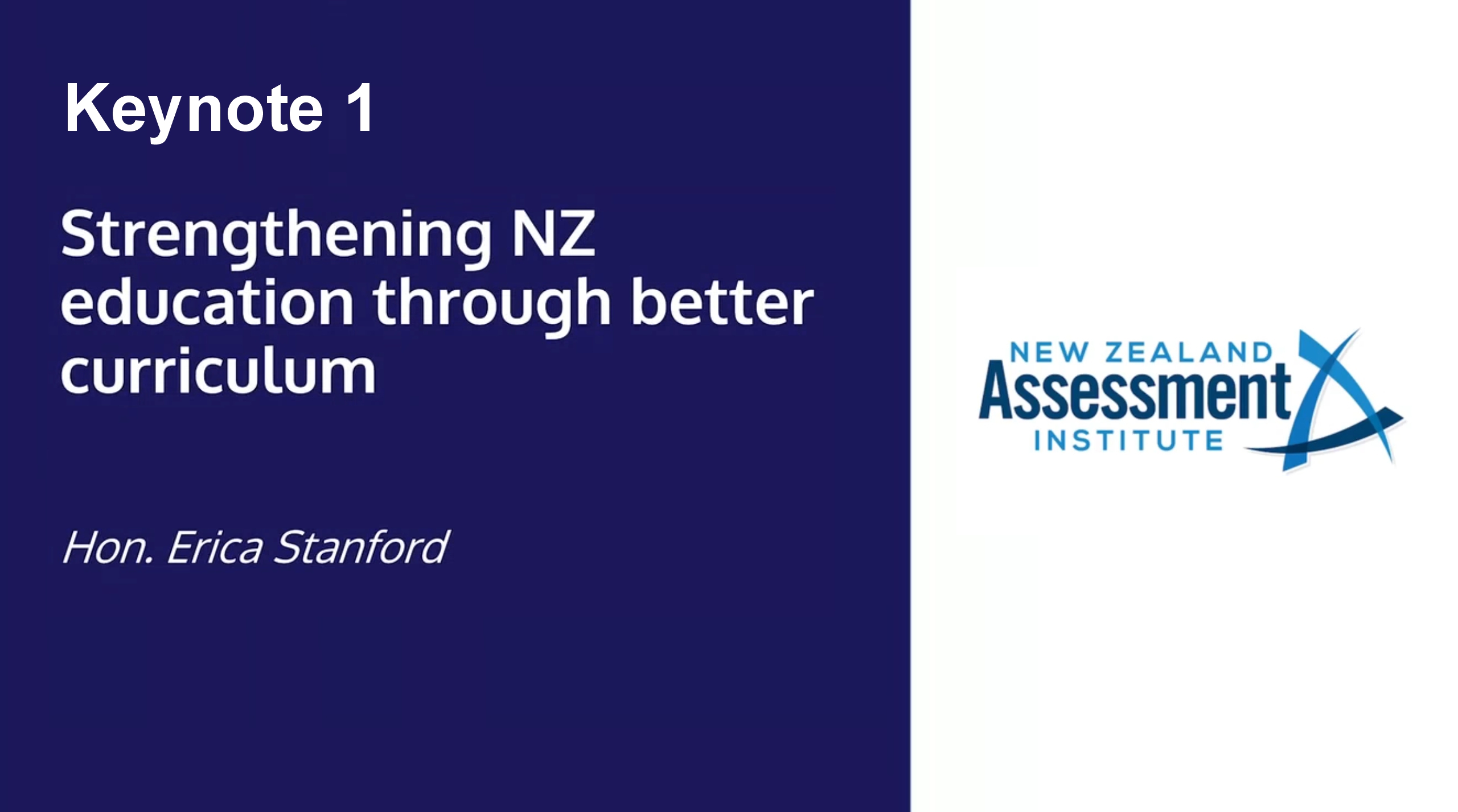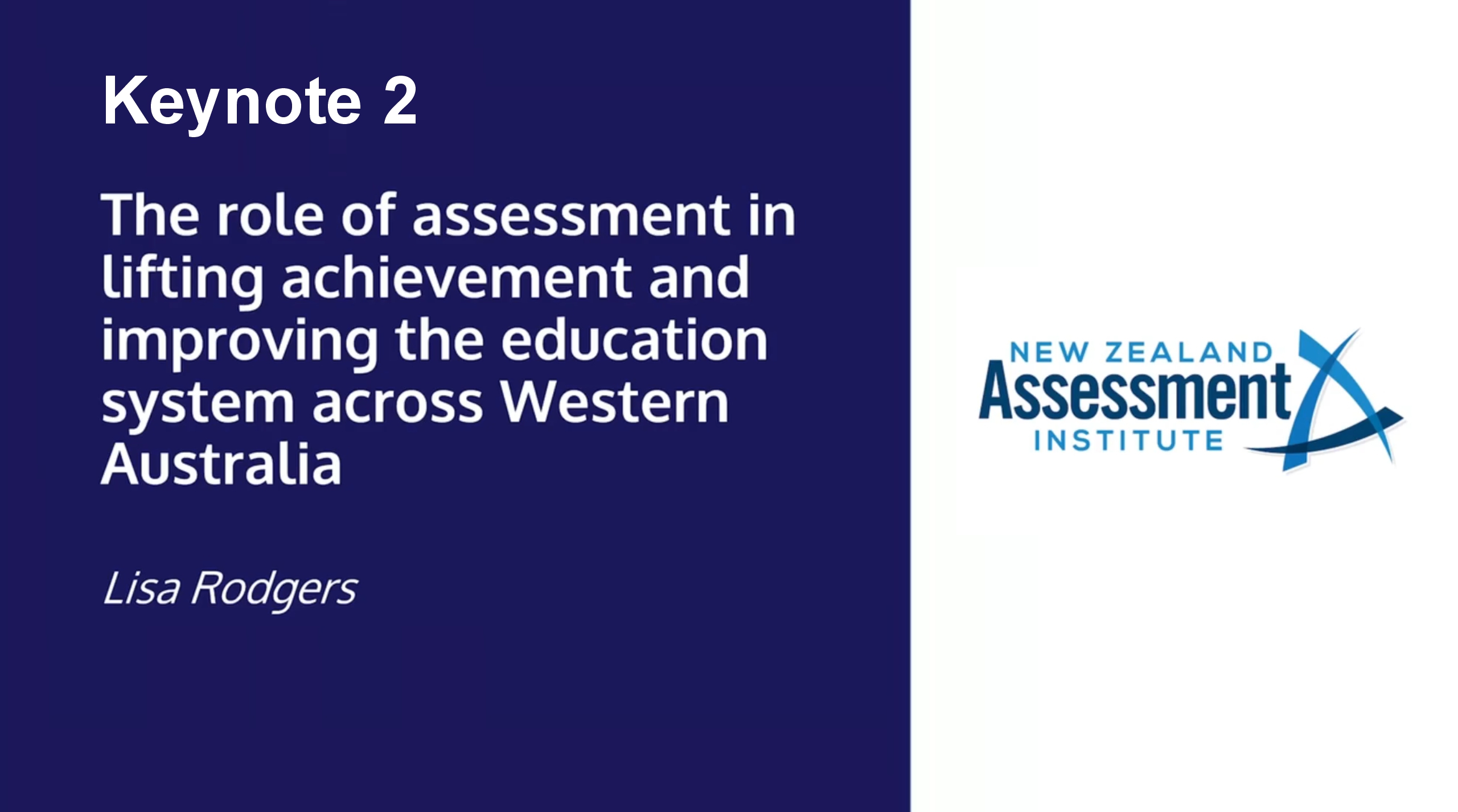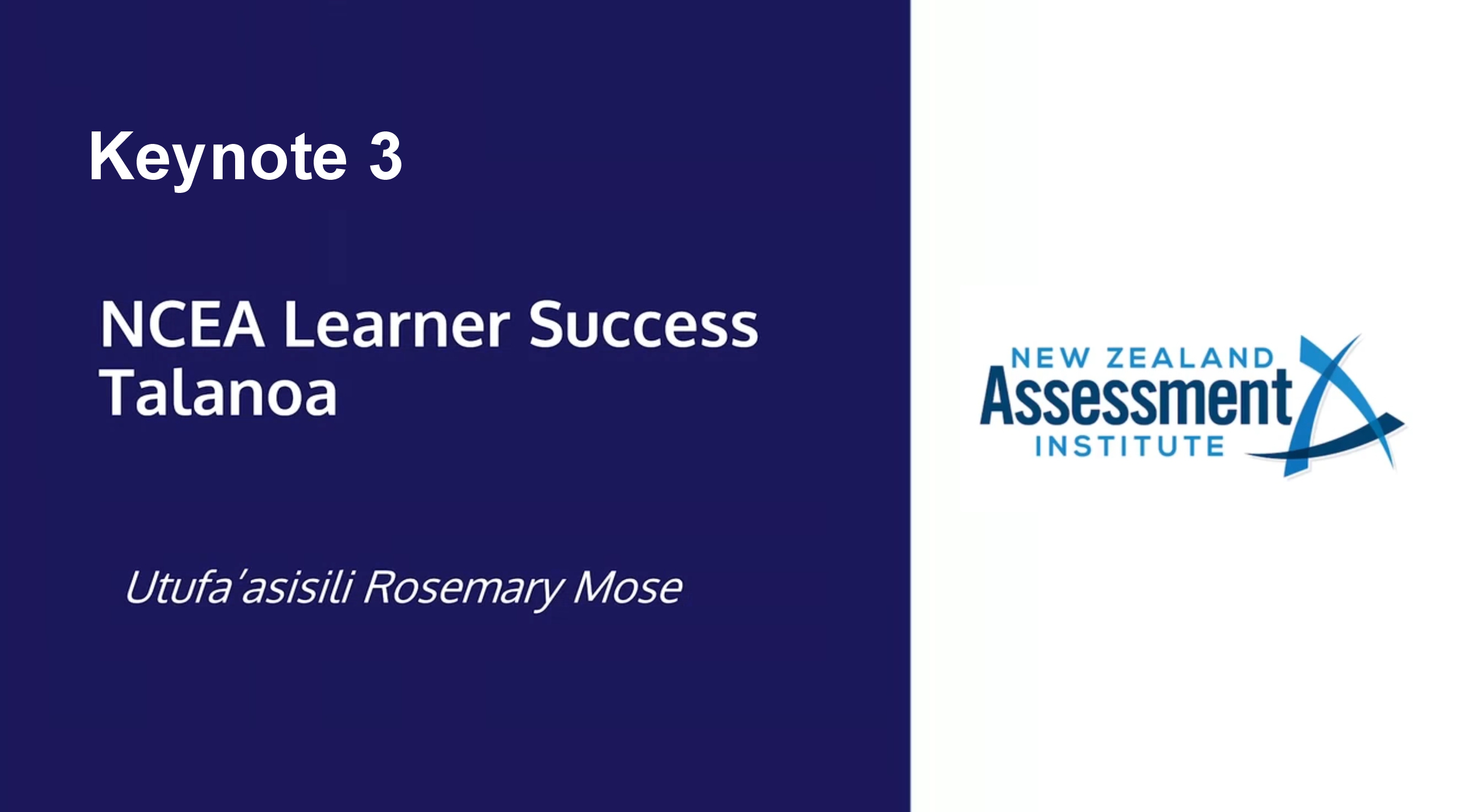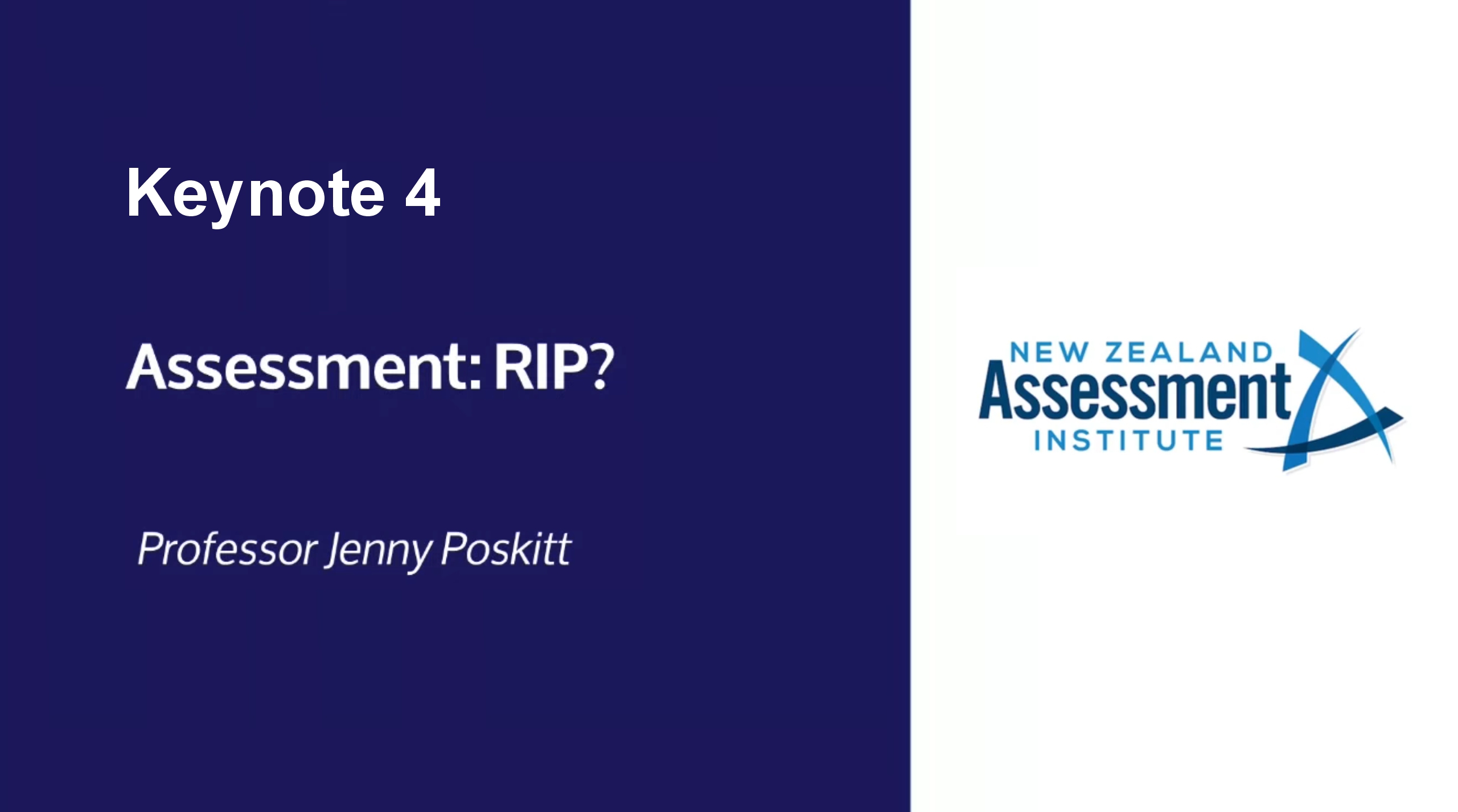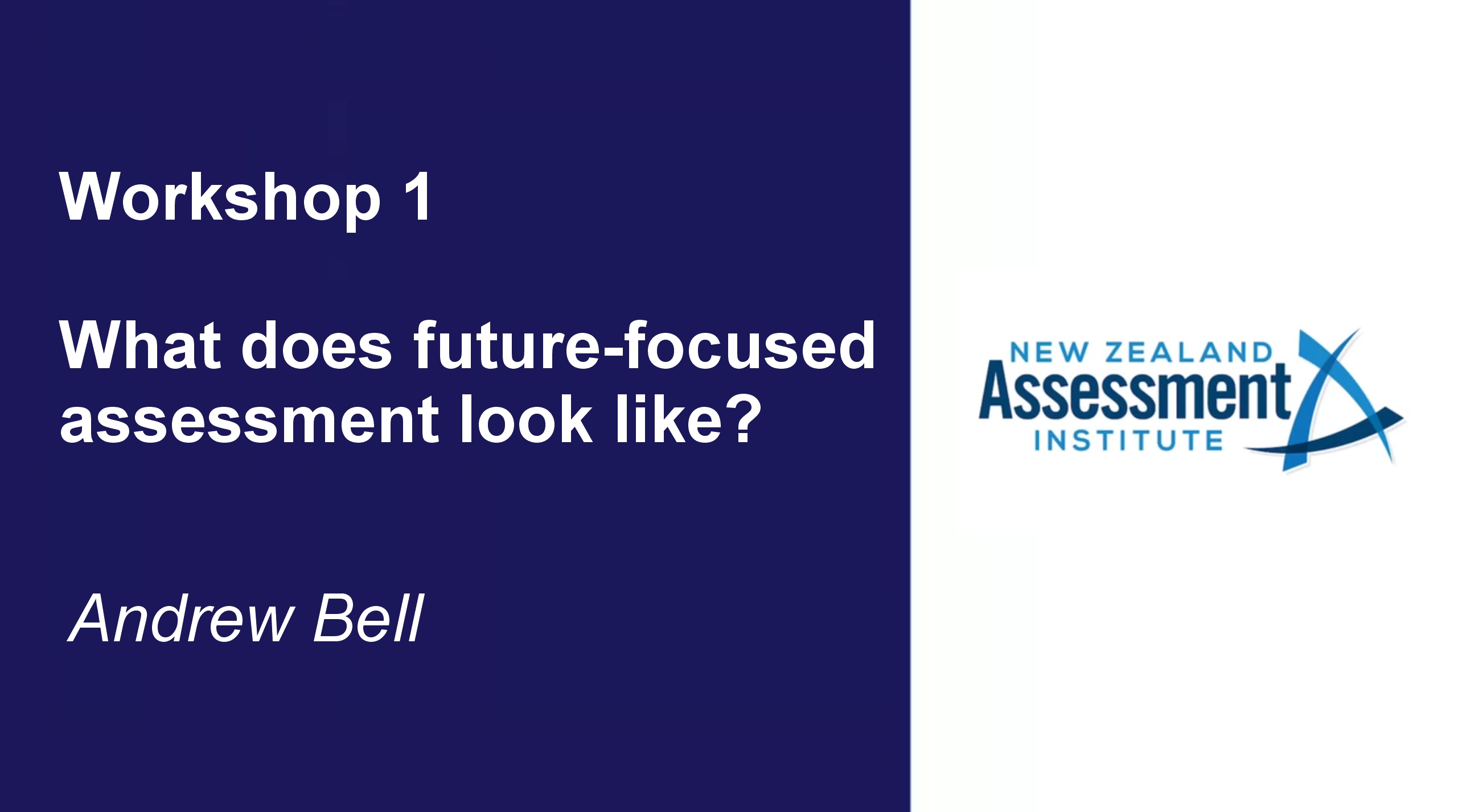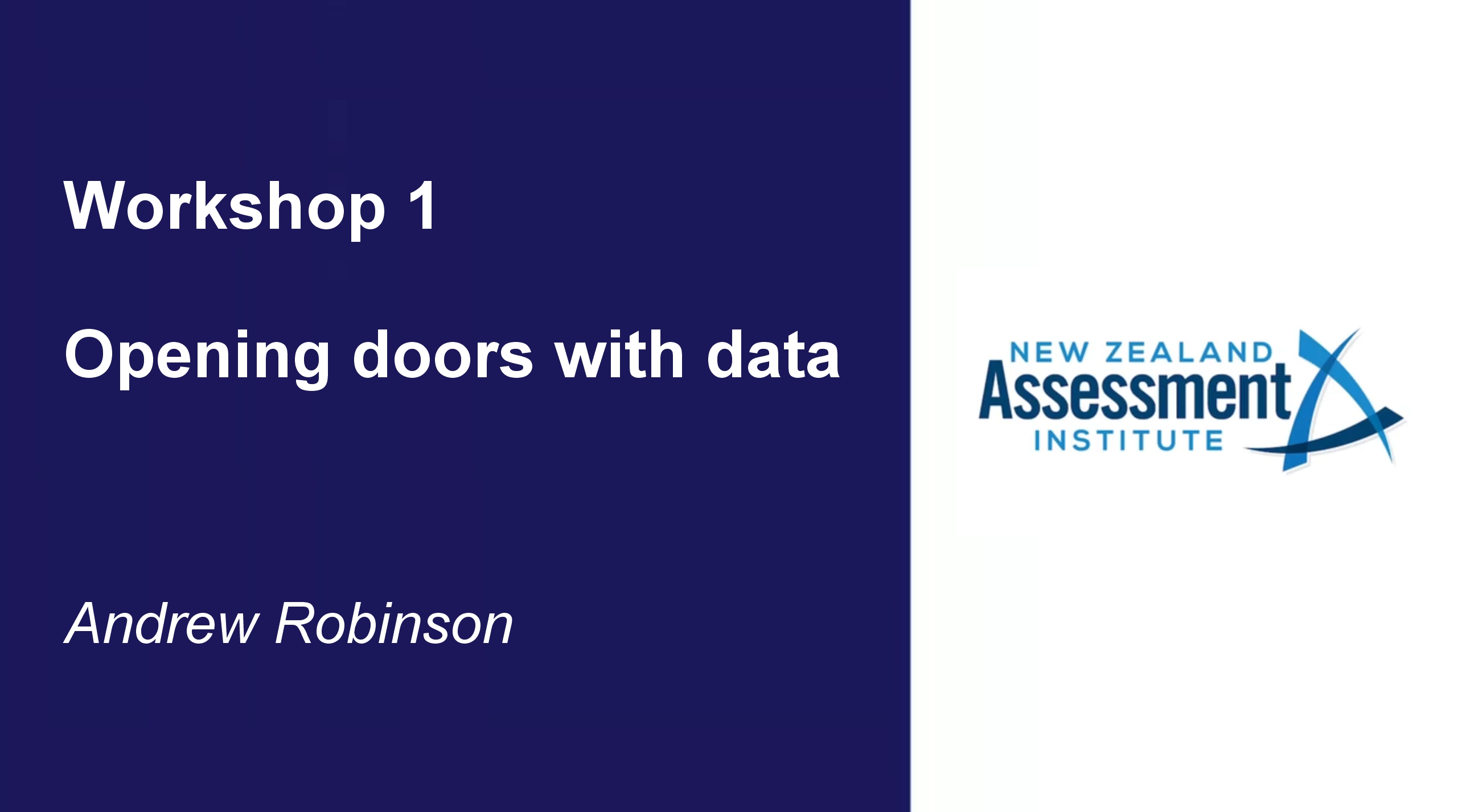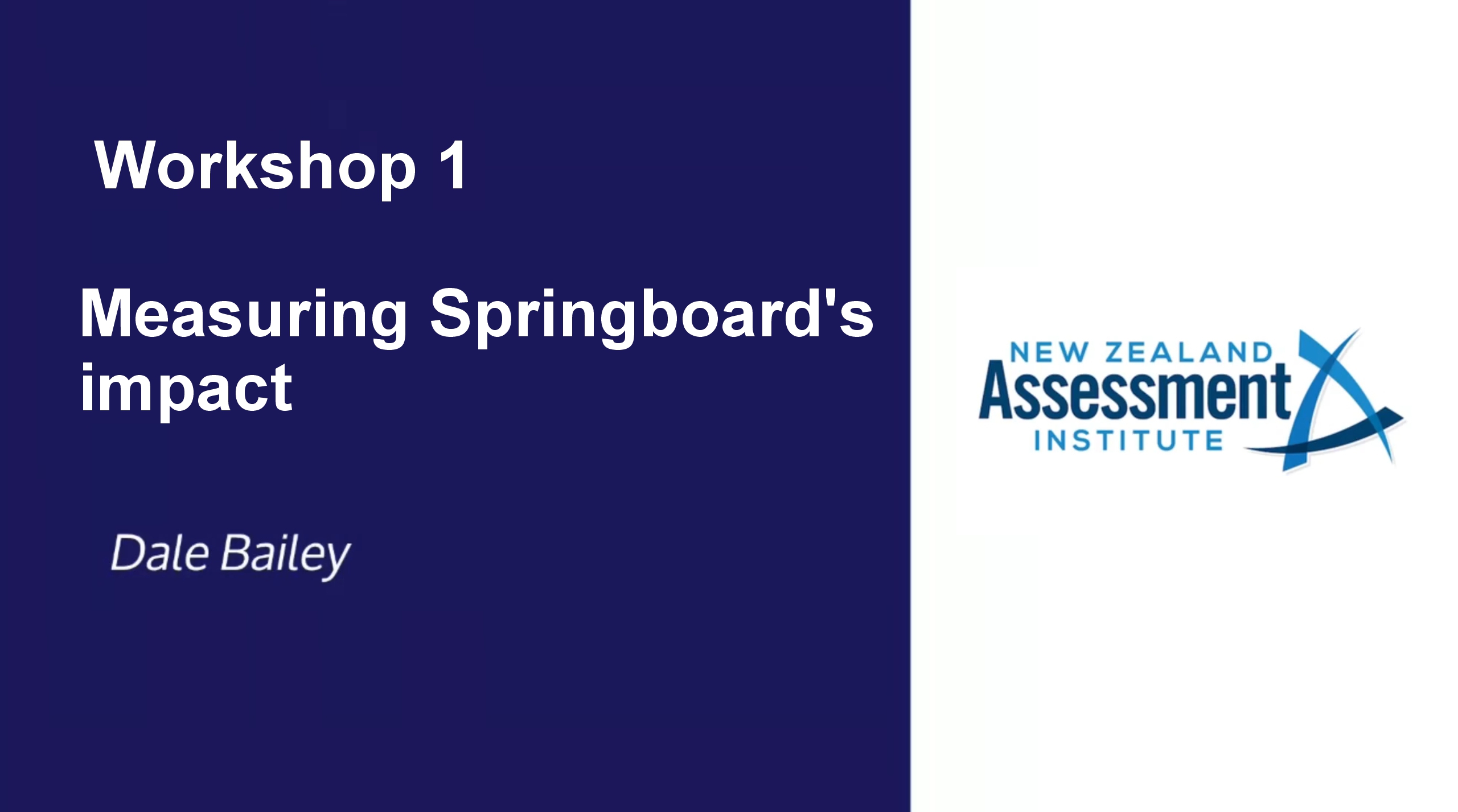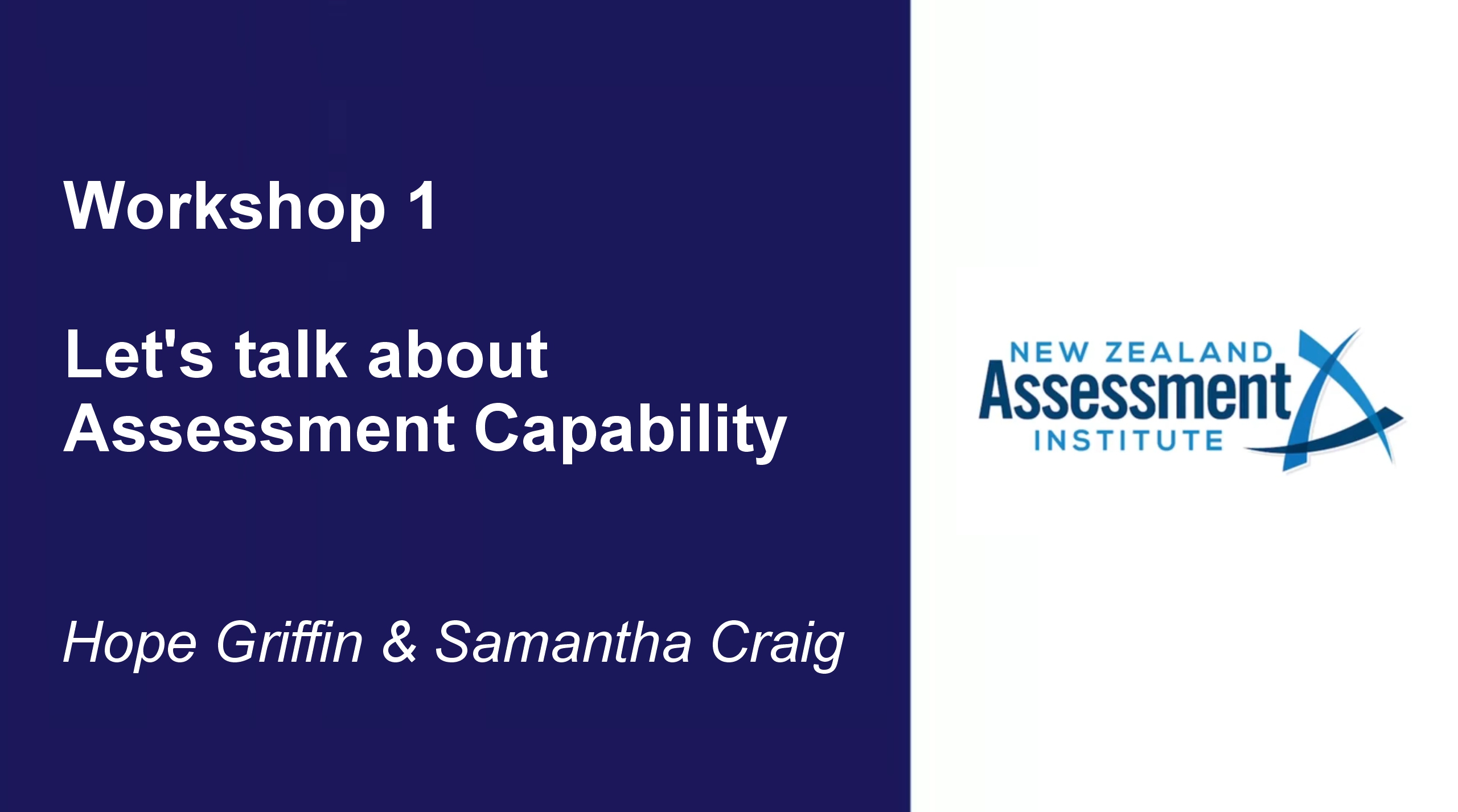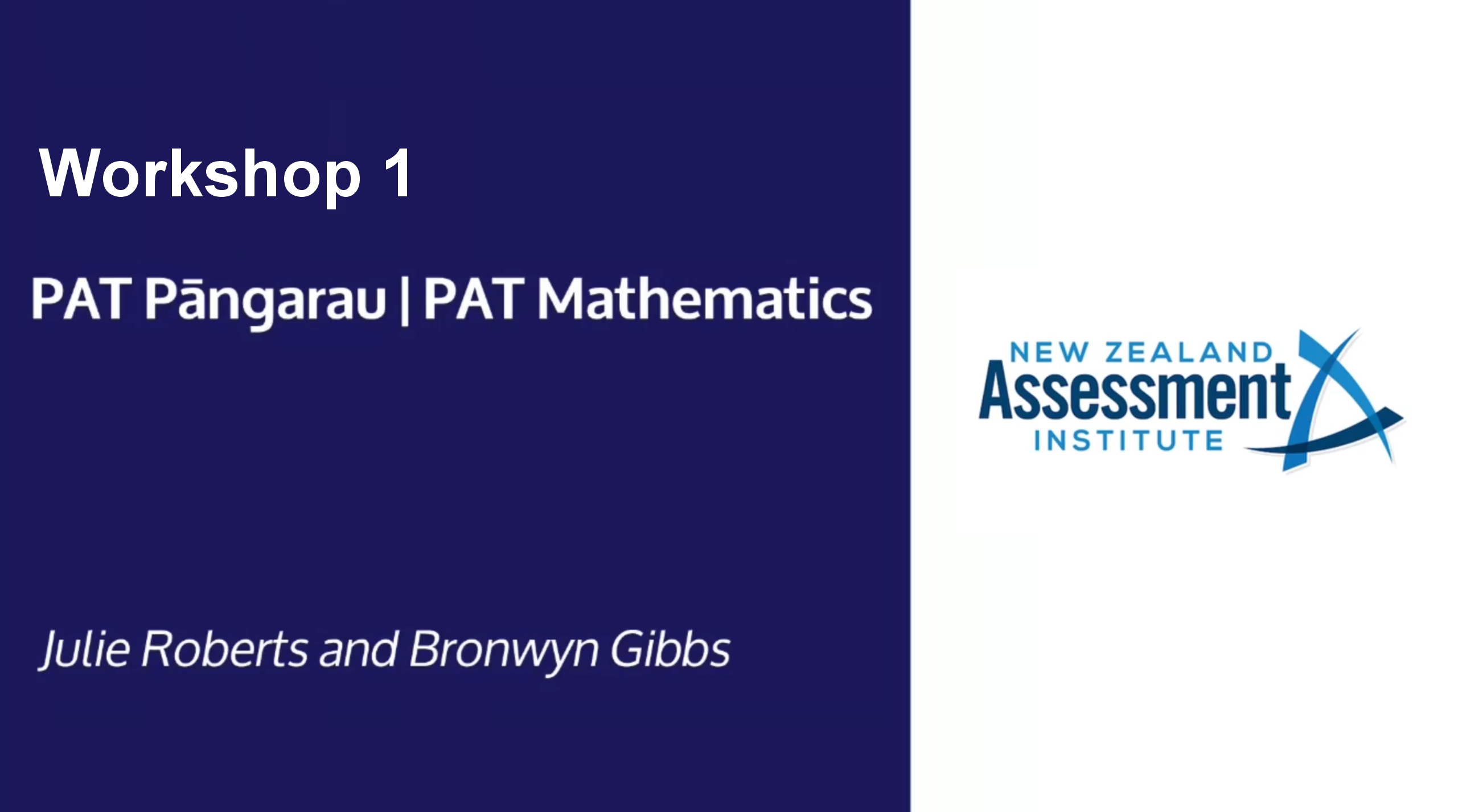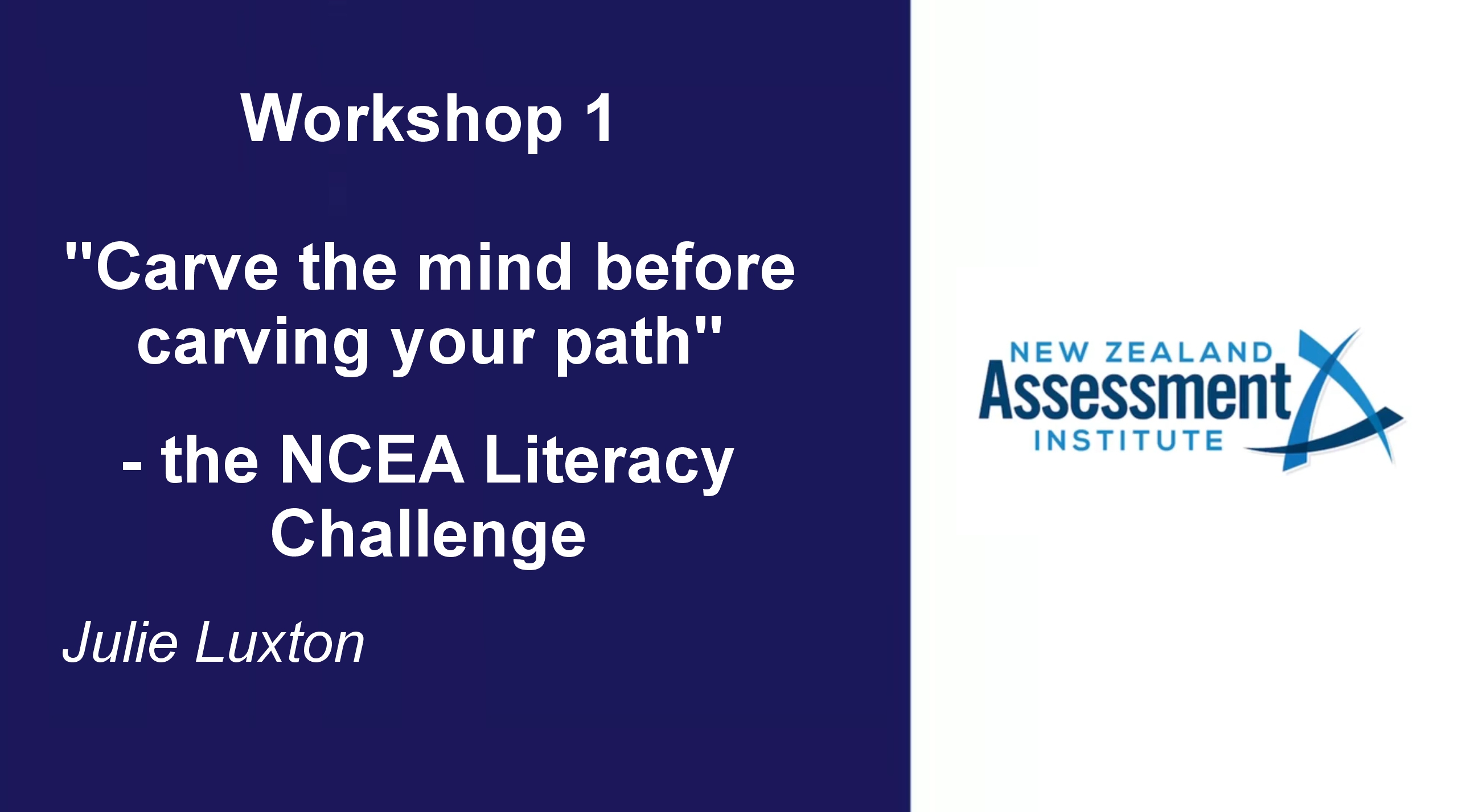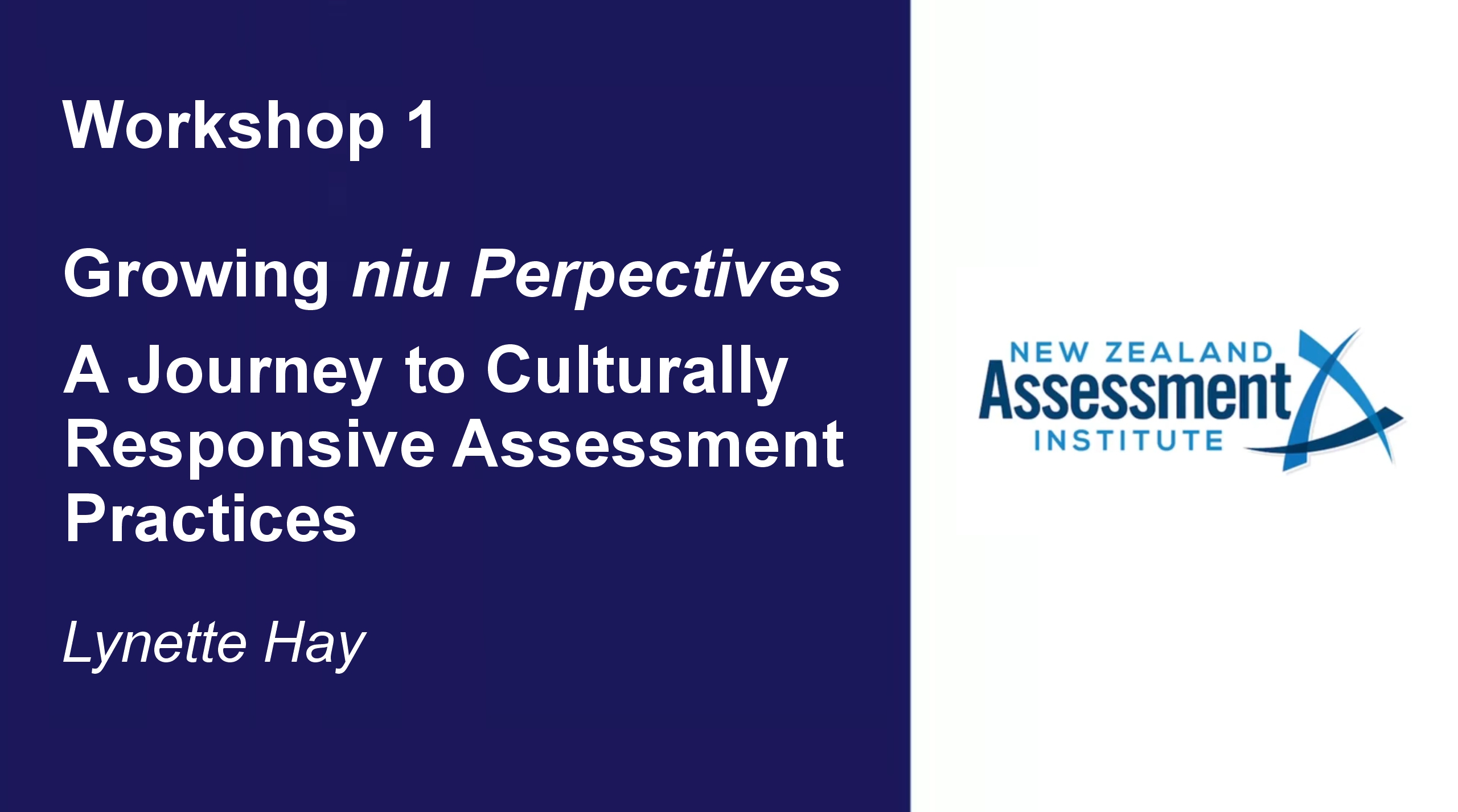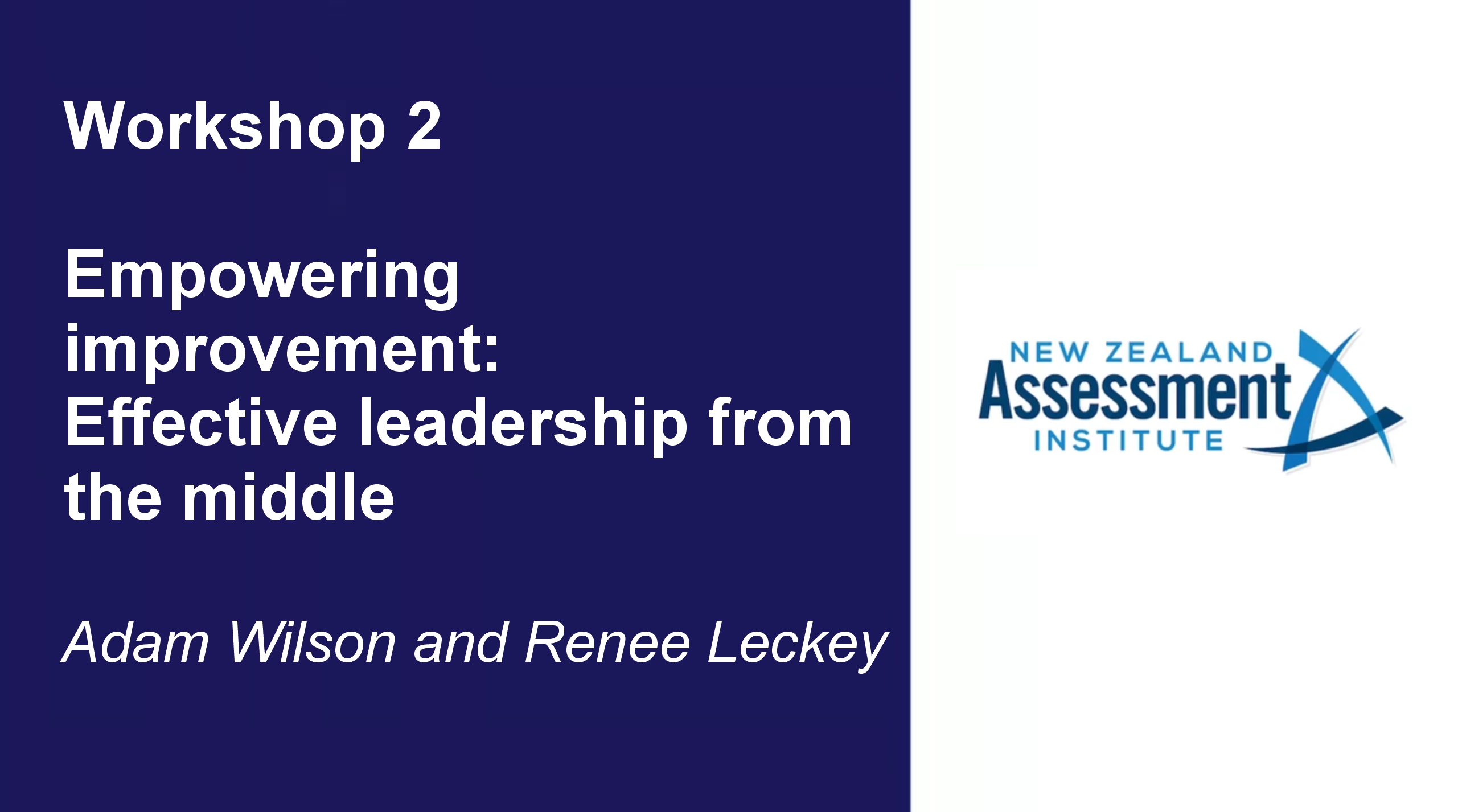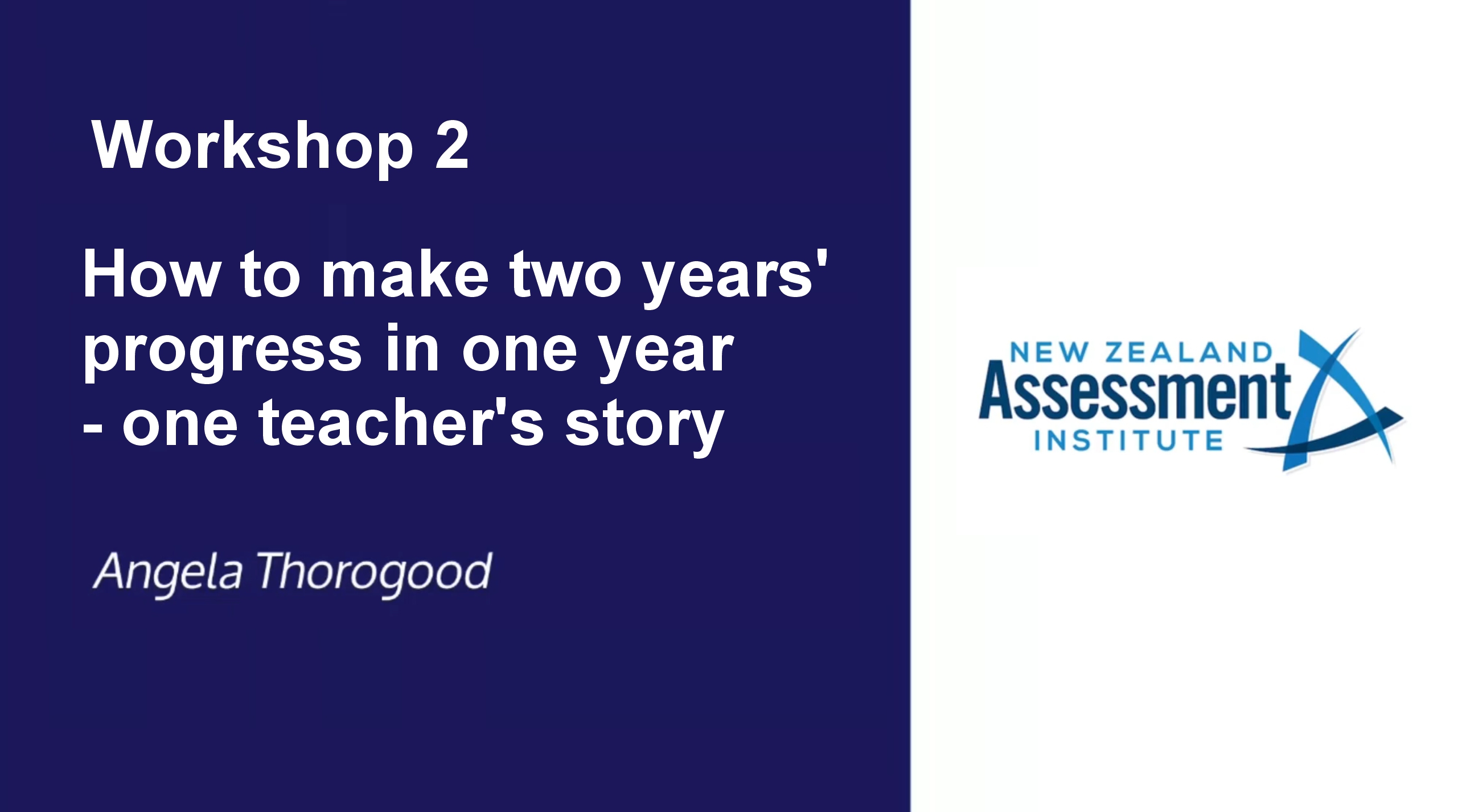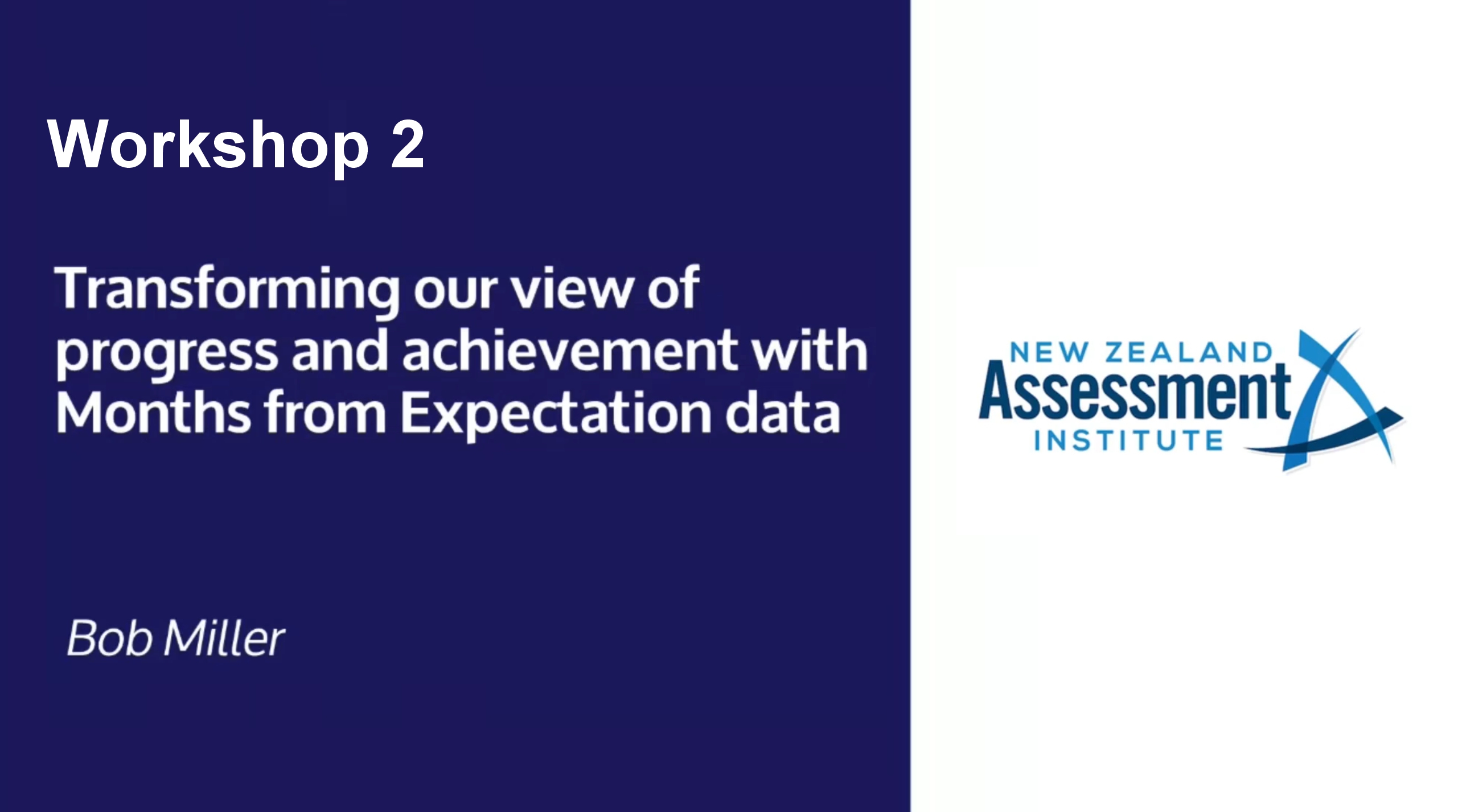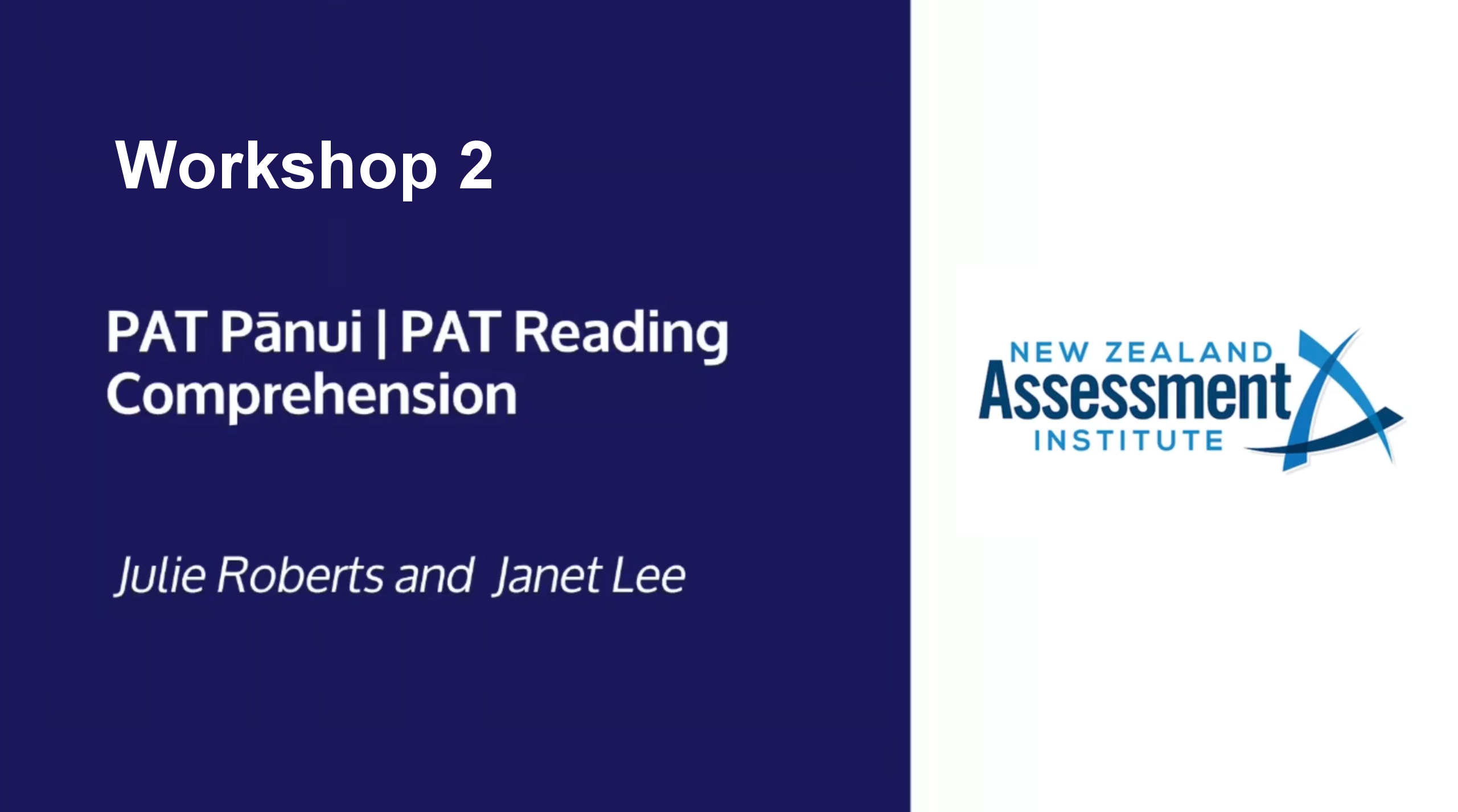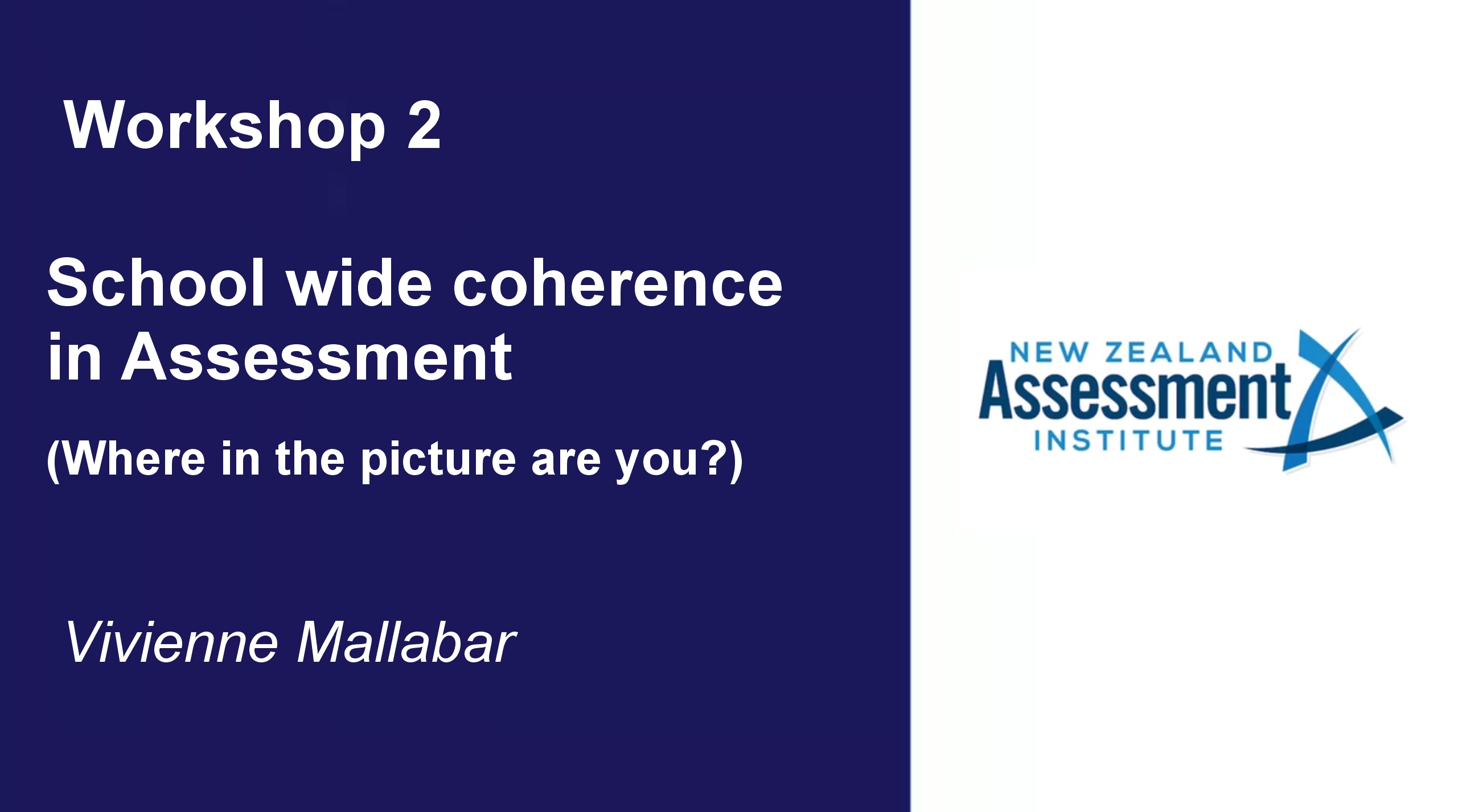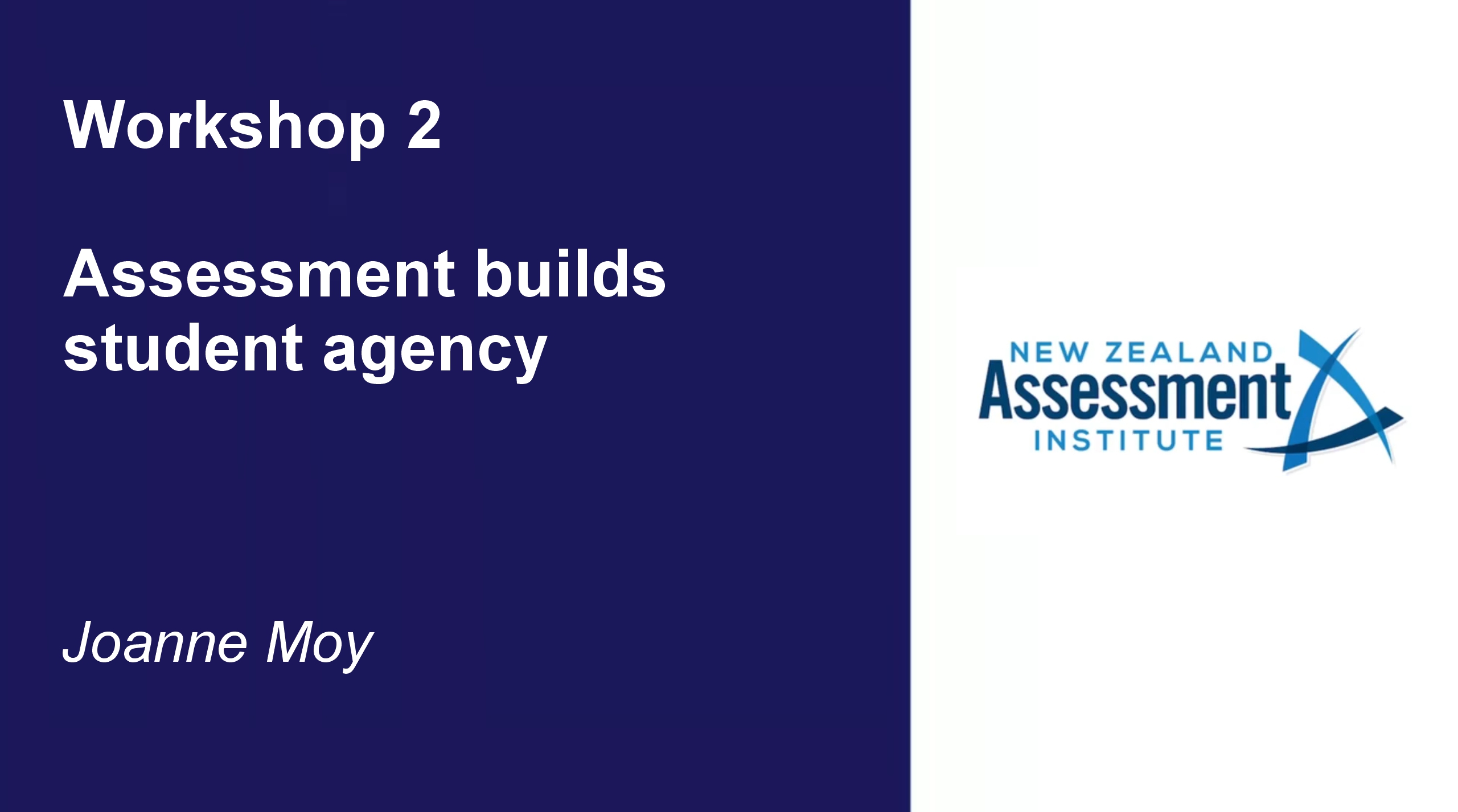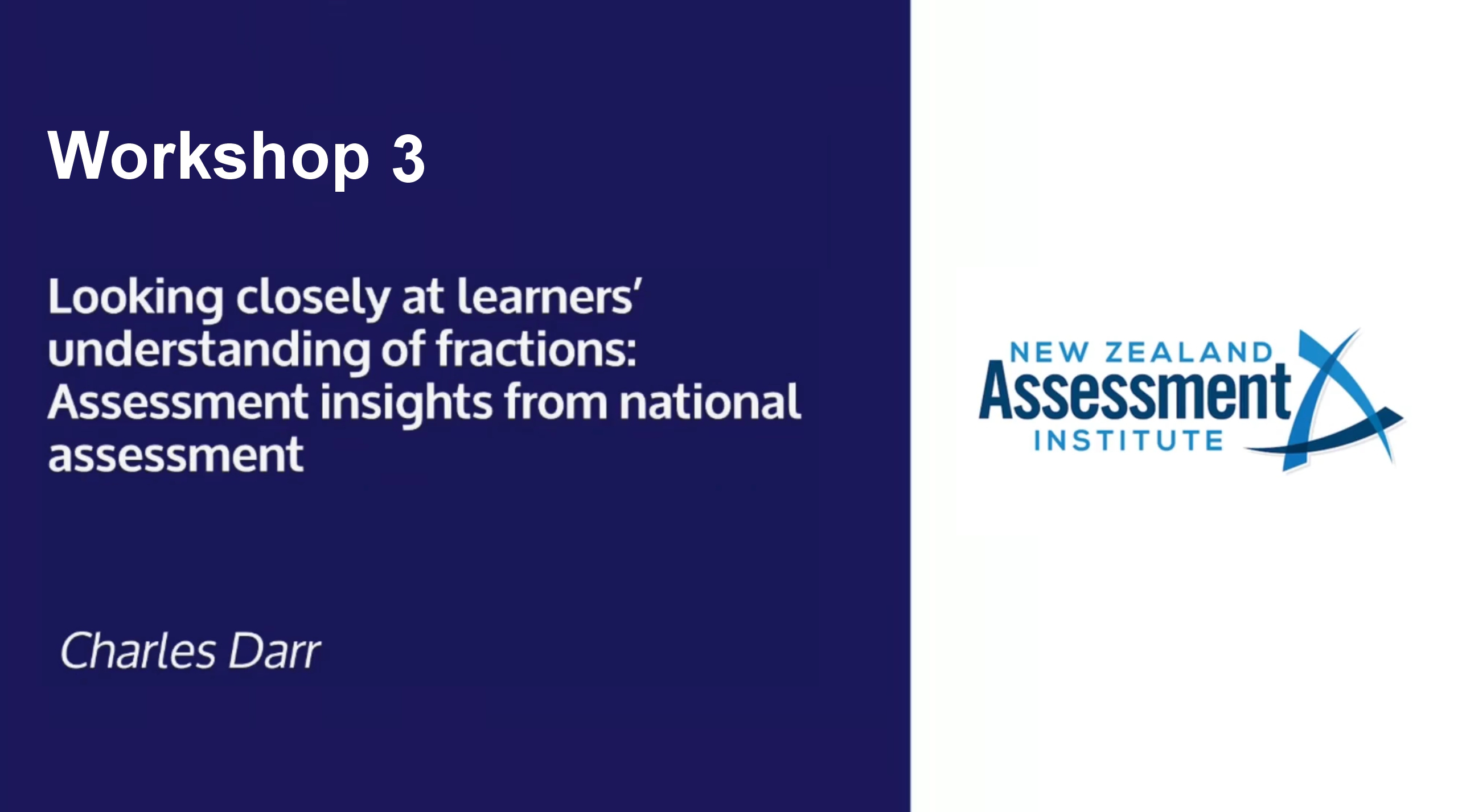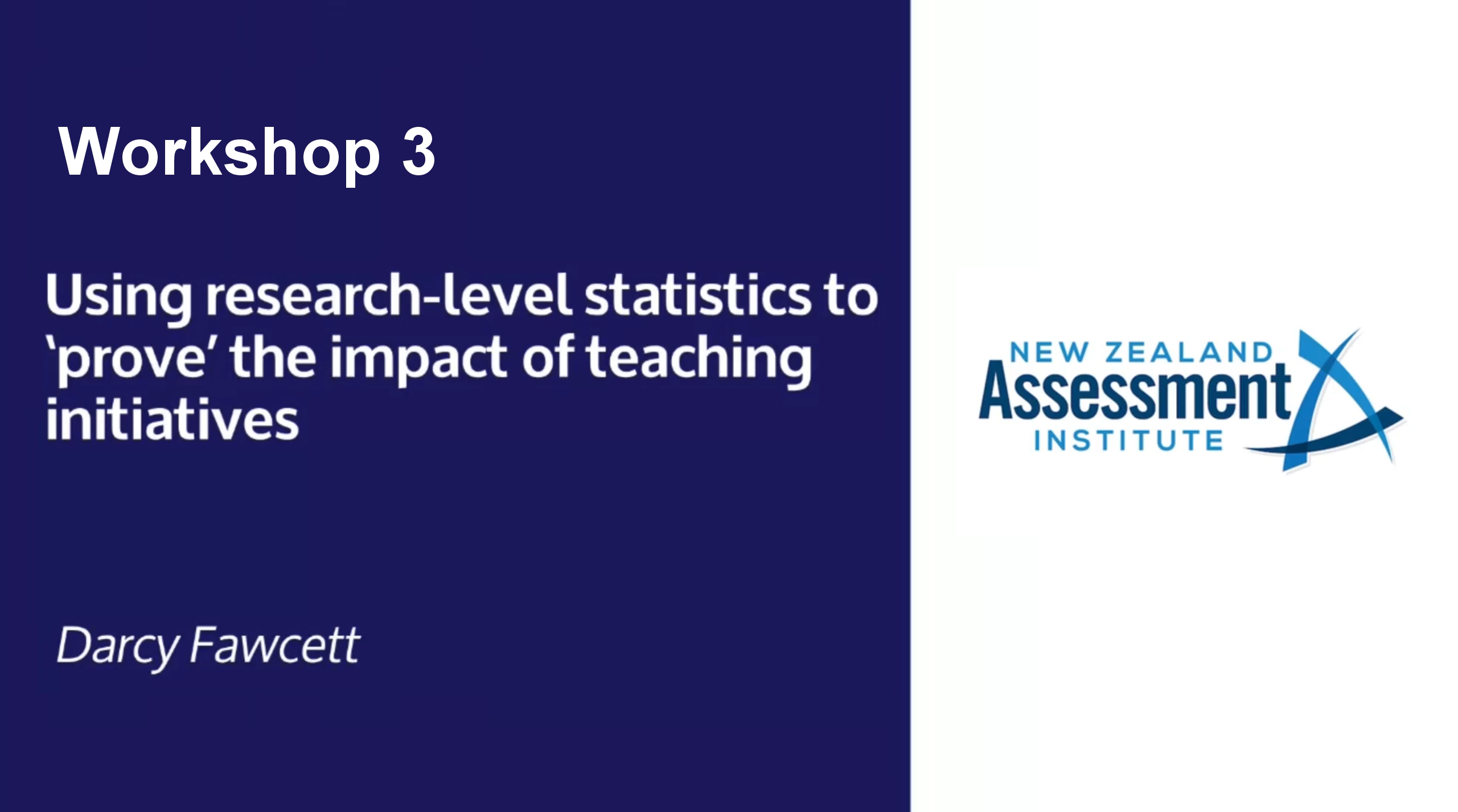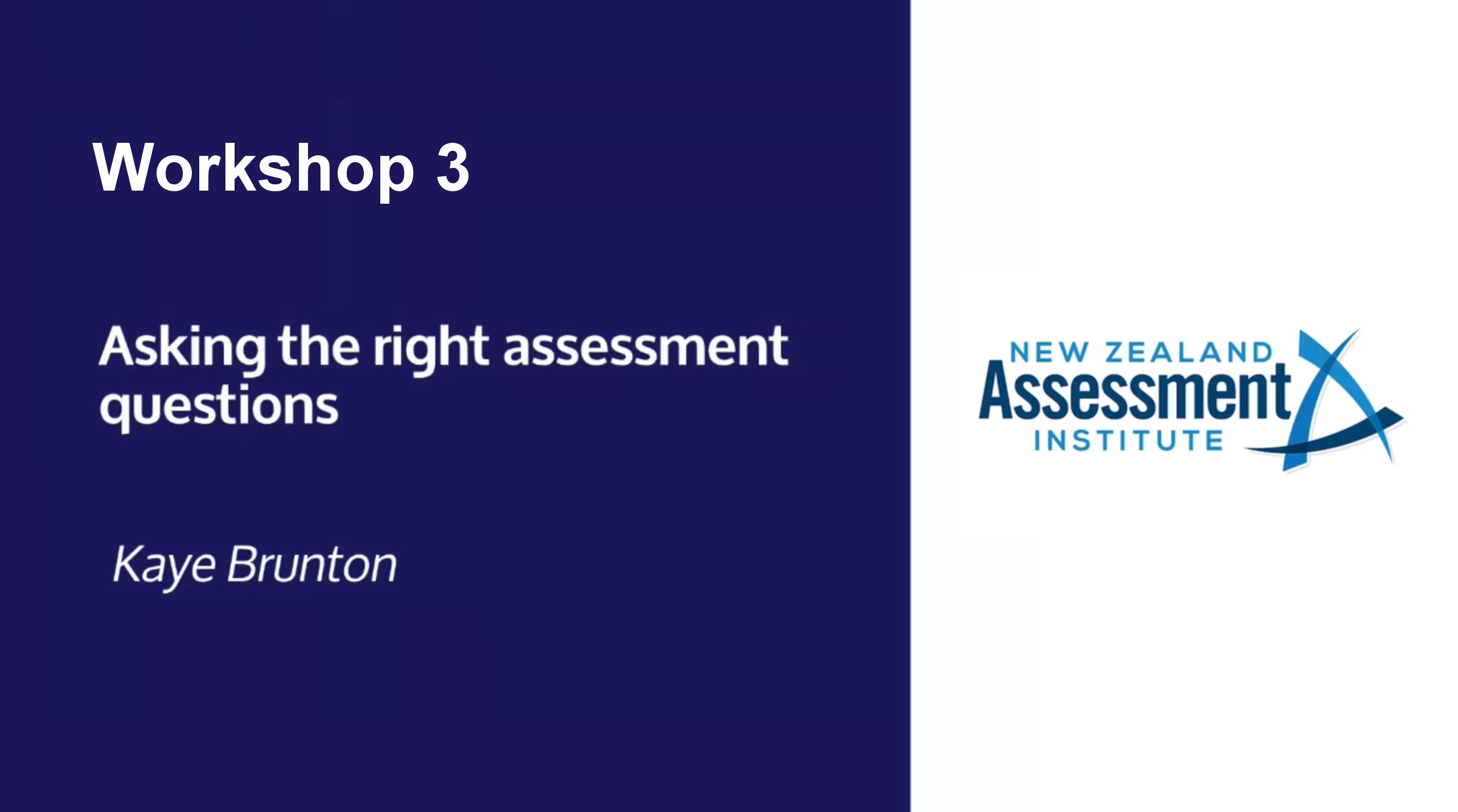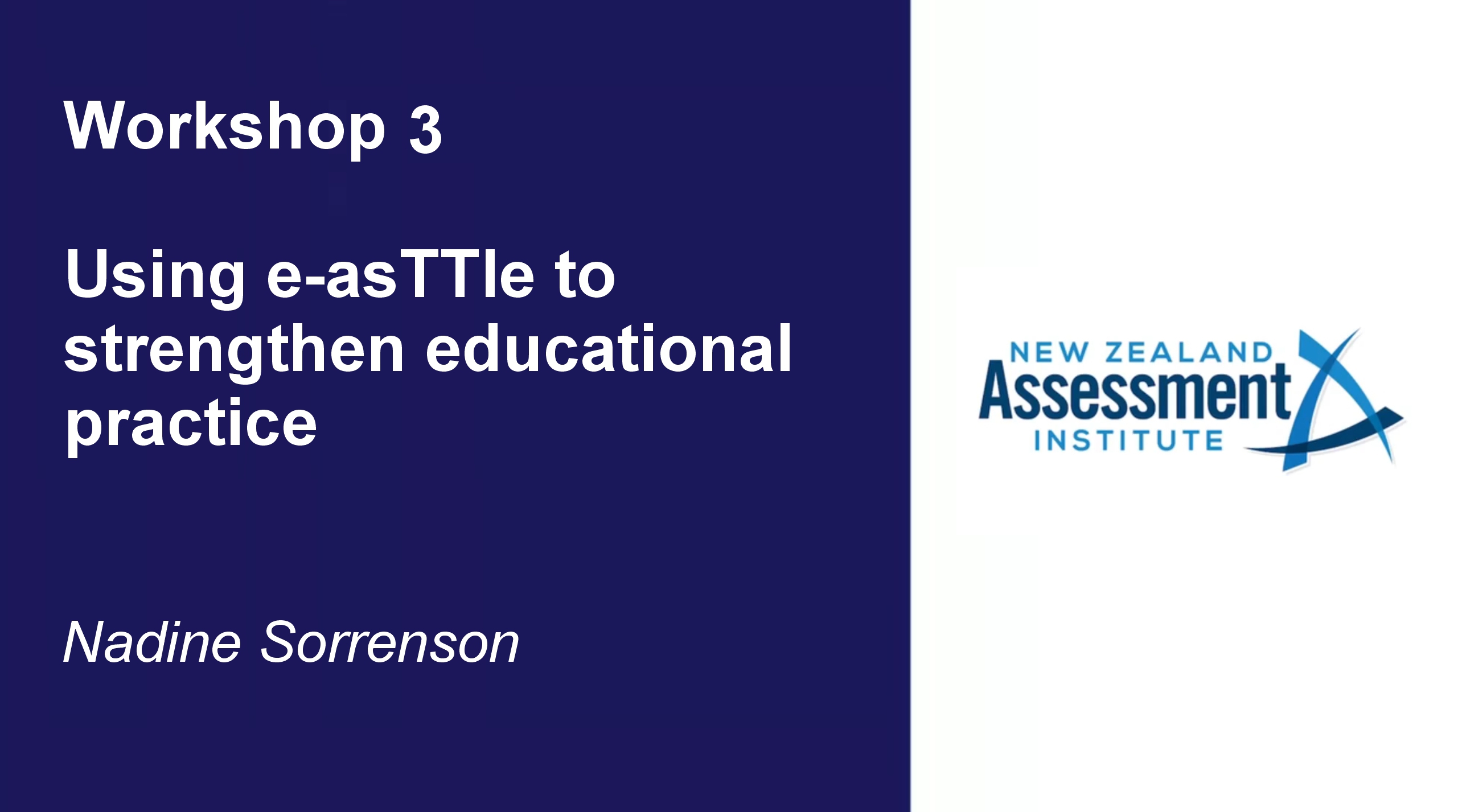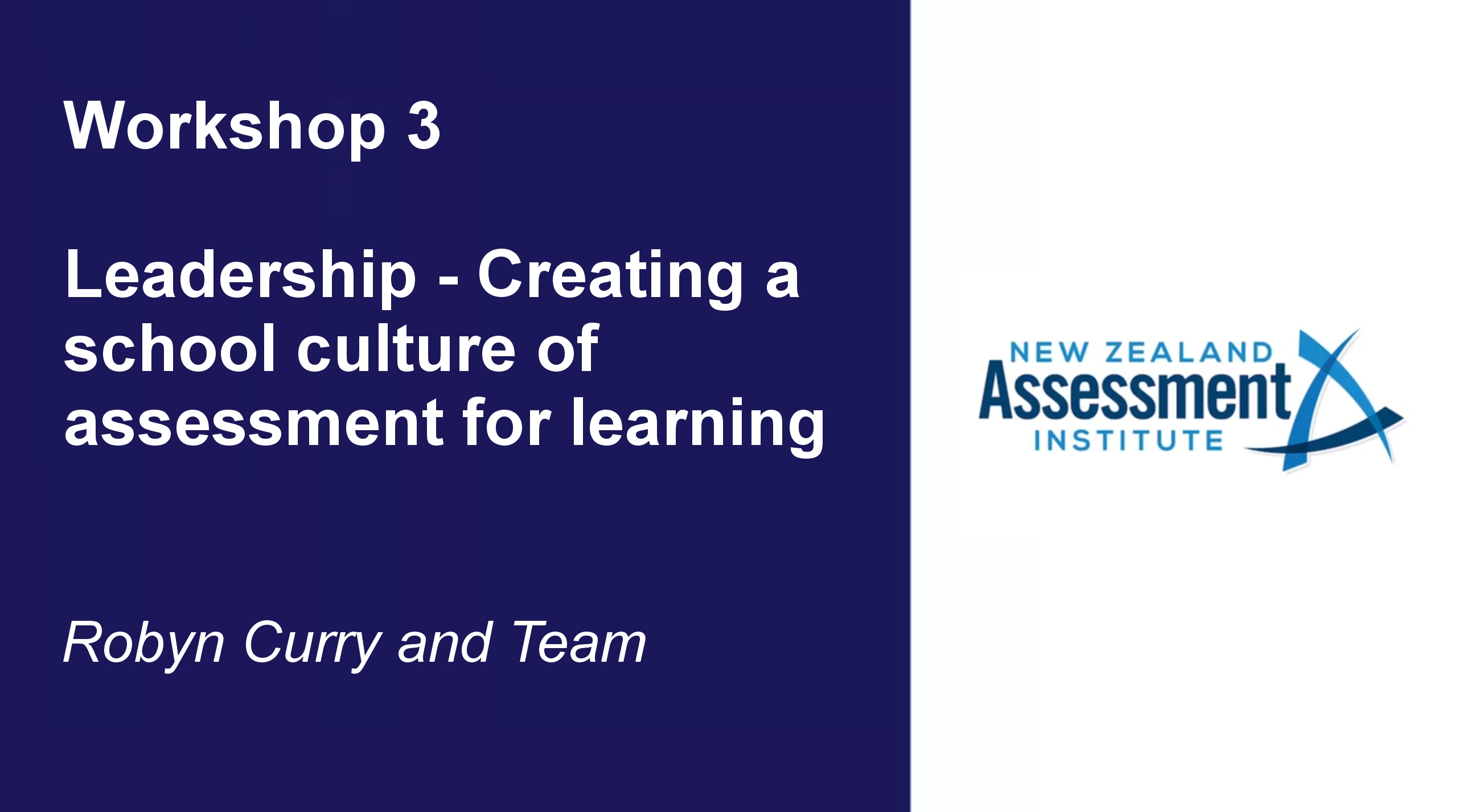National Conference Presentations 2024

We’re delighted to give you open access to the video presentations from our annual National Assessment Conference in April 2024. The conference theme this year was:
Taking Assessment from Strength to Strength – in Principle, Practice and Proof
Keynote speakers included the Hon Erice Stanford, Minister of Education. Workshops covered a range of assessment topics, from a range of educators, all of whom have interesting and thought-provoking ideas on educational assessment.
All of the presentations from the 2024 conference day can be found here, with keynote addresses first and workshops in the same order as they appeared on the day of the virtual conference. To help you in deciding which presentations to watch first, we have provided category tags. You can filter through the ‘Category’ drop down menu in the top left hand corner. We encourage you to dive in!
To refresh the table back to its original order click here
Webinar Title Webinar Summary Category hf:doc_tags The Hon. Erica Stanford is the current Minister of Education in the National Government. Her keynote at the 2024 conference focuses on her plans for strengthening New Zealand education. She talks enthusiastically about the Government’s top educational priorities, including a clearer curriculum, a focus on literacy and numeracy, more consistent assessment and achievement reporting, and an evidence-based approach to educational improvement. assessment and reporting, government policy, keynote, literacy, numeracy, years 1-13 assessment-and-reporting government-policy keynote literacy numeracy years-1-13 Lisa Rodgers was appointed as the Director General of the Department of Education Western Australia in January 2019. As a widely respected leader in education, Lisa has been committed to the progress and achievement of children and young people. Her keynote address for the NZAI conference 2024 focuses on the policies and practices implemented across schools in Western Australia, especially in assessment, that have seen impressive gains in student achievement. She is a powerful voice and advocate of reform and reconciliation and is highly committed to student outcomes, connected communities and effective leadership in schools. Her career in the public … cultural responsiveness, education policy, improvement, keynote, years 1-13 cultural-responsiveness education-policy improvement keynote years-1-13 The keynote address by Utufa’asisili Rosemary Mose, NZQA Deputy Chief Executive Pasifika, focuses on how to improve educational outcomes for Pasifika students. She speaks with grace and humour of the need for talanoa, Samoan for communication focused on inclusion, reconciliation and mutual respect. Utufa’asisili Rosemary is an experienced educator and leader. She led the development and implementation of Pasifika strategic plans at the Ministry of Education and Manukau Institute of Technology before joining NZQA as Chief Advisor Pasifika in 2019. In 2023, Utufa’asisili became NZQA’s first Deputy Chief Executive Pasifika. Of Samoan descent, she brings an important Pasifika voice to … keynote, NCEA, NZQA, Pasifika, years 1-13 keynote ncea nzqa pasifika years-1-13 Professor Jenny Poskitt, NZAI President, gives the final keynote address of the 2024 conference. She uses a story to illustrate the foundations of good assessment practice and integrates it with the assessment principles and practices detailed in the NZAI publication, Assessment to Improve Learning: Principles, Practices and Proof. Her central thesis is on the centrality of good assessment practice in the drive to improve learning and teaching. assessment capability, assessment for learning, keynote, principles and practices, years 1-13 assessment-capability assessment-for-learning keynote principles-and-practices years-1-13 Future-focussed learning has changed the way teachers teach; but how have assessment practices changed the way learning is assessed? Andrew Bell, a Learning Designer (HOD) at OrmistonJunior College explains how narrative assessment at Ormiston Junior College supports student learning, teaching practices and setting students up for future success. Through OJC’s Digital Badging (school wide assessment tool) and Learning Journeys, students have greater agency in their learning, teachers have better knowledge of where a learner is at holistically and communities have a larger impact on student success. Watch the discussion with students and their teacher of possible ways to bring future … agency, community engagement, digital badges, future-focus, narrative assessment agency community-engagement digital-badges future-focus narrative-assessment Andrew Robinson explains how tracking progress and achievement data has built connections, trust and transparency across the Devonport/Takapuna Kāhui Ako. Andrew is a team leader for year 5-6 at Devonport Primary School. He has been involved with the Kāhui Ako for 5 years – 2 as a Within-School Leader and 3 as an Across School Leader. data collection and analysis, kāhui ako, tracking progress and achievement data, years 4-13 data-collection-and-analysis kahui-ako tracking-progress-and-achievement-data years-4-13 Springboard Trust is a not for profit focused on strategic leadership in New Zealand’s schools. The Trust focuses on developing school leadership so that schools create great outcomes for all young people. They do this by bringing together school and corporate leaders to develop strategic approaches to their schools. Dale Bailey, Chief Executive of the Trust, discusses how they go about collecting information about their own work, their theory of change and their insights into mahi from external evaluation. The workshop also examines Springboard’s pilot on measuring school progress using the business tool balanced scorecard in 50 schools. This pilot … evaluative capability, measuring progress, strategic leadership evaluative-capability measuring-progress strategic-leadership How assessment capable are our learners and teachers? This workshop explores the use of SchoolTalk and other innovative assessment tools used at Stonefields School, in order to enable learners and teachers to be assessment capable. It investigates how SchoolTalk is used in practice, how teachers can use the Gap Analysis tool to tailor and personalise their learning design to suit learner needs. Learners demonstrate their use of SchoolTalk, and show how they are aware of their next learning steps. Hope Griffin and Samantha Craig explain how these tools can lead teachers to design high quality learning experiences for learners, and … assessment capability, assessment for learning, assessment tools, SchoolTalk, years 4-8 assessment-capability assessment-for-learning assessment-tools schooltalk years-4-8 PAT Pāngarau|PAT Mathematics assessments are now more culturally relevant, more accessible, and more authentic to Aotearoa New Zealand. The refreshed assessments support Years 3 – 11. This workshop will explore the changes in the assessments and the range of reporting features at classroom and schoolwide level. Learn how to discover the story in your data, ways to effectively filter, and how to use this information to support teaching and learning. Julie Roberts is an experienced mathematics and assessment facilitator who has worked in a range of capacities delivering professional learning in schools and clusters. Bronwyn Gibbs is an experienced resource … cultural relevance, PAT Pāngarau|PAT Mathematics, refresh, years 3-10 cultural-relevance pat-pangaraupat-mathematics refresh years-3-10 This presentation aims to familiarise teachers and leaders with NCEA foundational literacy requirements – a major focus in secondary schools at the moment. It provides an overview of the ‘big ideas’ of the reading and writing matrices and available Ministry resources supporting improvement in teacher practice in and across learning areas. Examples of how secondary schools in Tāmaki Makaurau are preparing teachers and learners for these assessments are discussed based on Julie Luxton’s current work on the NCEA Literacy Regional Support contract. Julie is currently an education consultant for Evaluation Associates Ltd | Te Huinga Kākākura Mātauranga. In this role … co-requisites, literacy, NCEA, years 9-13 co-requisites literacy ncea years-9-13 With our classrooms reflecting a growing diversity of cultures, understanding and integrating cultural responsiveness into Assessment for Learning (AfL) is imperative. But what does it truly mean to be culturally responsive, and how can we ensure this understanding informs our assessment planning and implementation? Join Lynette Hay where she explores a niu perspective on culture and its impact on assessment practices, and delves into how this understanding can ensure assessments effectively meet the needs of students from diverse backgrounds. Based in Auckland, Lynette, drawing from her Niuean heritage, offers over two decades of educational expertise. She excels in cultural responsiveness, … assessment for learning, cultural capability, cultural responsiveness, years 1-13 assessment-for-learning cultural-capability cultural-responsiveness years-1-13 This presentation, led by Adam Wilson of Mt Roskill Grammar School, looks at the role of effective middle leadership in supporting the implementation of Assessment for Learning pedagogy in a secondary school. It links assessment principles to practice and proof through a middle leader’s reflections on the improvement process in his department, including a focus on the deliberate acts of effective middle leadership that have made a difference for teacher learning. Adam has an extensive background in leadership with prior roles in senior leadership and 19 years’ experience in middle leadership. He is supported by Renée Leckey, an experienced educator currently … assessment for learning, middle leadership, NCEA, years 9-13 assessment-for-learning middle-leadership ncea years-9-13 In 2023 Angela went back into the classroom after 20 years in leadership. She got what she calls amazing results from her students by using Assessment for Learning pedagogies. The average rate of progress was two years within the year, and sometimes even more. She has good data for reading, spelling, writing, and maths from her Year 4-6 class. She shares how she helped her students to learn at an accelerated pace based on AFL, and other hints and tips that could help your students learn really really well! acceleration, assessment for learning, years 1-8 acceleration assessment-for-learning years-1-8 Bob Miller of Te Kete Hono explains how primary schools have downloaded progression data from Schooltalk to measure how many months a learner is from their expected level. Tracked over time this creates a powerful view of progress that celebrates acceleration regardless of the learner’s academic achievement level. Months from Expectation (MfE) Data can be analysed to allow teachers to assess their own impact across different groups. Learn how MfEs can be correlated with standardised data such as e-asTTle or PATs to support moderation of progressions. See also how MfEs can be analysed with non-achievement data such as attendance or … data collection and analysis, months from expectation data, progression data, SchoolTalk, years 1-8 data-collection-and-analysis months-from-expectation-data progression-data schooltalk years-1-8 PAT Pānui| PAT Reading Comprehension assessments are now more culturally relevant, more accessible, and more authentic to Aotearoa New Zealand. The refreshed assessments support Years 4 – 10 and are available online in 2024. The workshop explores the changes in the assessments and the range of reporting features at classroom and schoolwide level. Julie Roberts and Janet Lee, assessment specialists from NZCER, look closely at the types of comprehension questions asked in the assessments as these have been broadened. You can learn how to discover the story in your data, ways to effectively filter, and how to use this information … cultural relevance, PAT Pānui| PAT Reading Comprehension, refresh, years 4-10 cultural-relevance pat-panui-pat-reading-comprehension refresh years-4-10 Vivienne Mallabar, a Deputy Principal at Ormiston Junior College, explains how the school is developing a more cohesive connection between the different levels of assessment in a school. Connections are being made between what assessment looks like for a student, classroom teacher, middle leads with oversight of cohorts and senior leaders. The workshop looks at AfL practices and what this looks like to build staff capacity, student agency, and the curriculum as interconnected with learning, teaching and assessment in particular. Vivienne shares learning journeys, digital badging systems and processes. Vivienne has a passion for students being engaged and active in … agency, Assessment coherence, assessment for learning, years 1-13 agency assessment-coherence assessment-for-learning years-1-13 The focus of the workshop is on Principle Two of the NZAI publication – Assessment Principles, Practices and Proof. Principle Two is Assessment builds agency. The workshop explores ways in which we can build on the strengths of our students; how they think about their learning, where they are at and how they know. Stories are shared of how other teachers have built partnership in assessment as well as the mana and connectedness of the students. Joanne Moy, a member of the Evaluation Associates facilitation team, has worked with tumuaki and kaiako over the last seven years supporting them to … agency, assessment for learning, years 1-10 agency assessment-for-learning years-1-10 Looking at how learners respond to carefully constructed assessment tasks can open a treasure trove of insights about thinking and emerging capabilities. This workshop looks at some of the things researchers from the new Curriculum Progress and Insights study noticed when they looked at how students in Years 4 and 8 responded to national monitoring tasks involving fractional thinking. The workshop also explores how teachers might make use of the tasks in their own investigations. Charles Darr is a chief researcher at the New Zealand Council for Educational Research (NZCER). He is part of the leadership team for the new … Curriculum Insights and Progress Study, fractional thinking, mathematics, research, years 3-9 curriculum-insights-and-progress-study fractional-thinking mathematics research years-3-9 Darcy Fawcett’s workshop aims to show primary, intermediate and secondary school leaders that research-level statistical analysis is within the reach of all and inspire them to use statistics to evaluate and ‘prove’ the impact of teaching initiatives on assessment outcomes. He draws on educational research and his ongoing work as a professional development provider and data coach. The workshop consists of a presentation and then an exploration of the Sound Data teacher-friendly dashboards. It focuses on NCEA Subject and e-asTTle data. Darcy continues to dedicate his career at Sound Data and PhD research to supporting teachers to develop their practice and … assessment capability, e-asTTle, NCEA, statistical analysis, years 1-13 assessment-capability e-asttle ncea statistical-analysis years-1-13 Using assessment effectively requires an inquiry mindset at every level – what does it look like for leaders, teachers, learners? What are the important questions that drive effective assessment? And what do we do with the answers to those questions? To be able to ask the right questions, leaders, teachers and learners need to be strong in their assessment capability. In this workshop Kaye Brunton, experienced educator, long-term assessment for learning advocate and part of the Evaluation Associates facilitation team, discusses assessment capability – what does it mean and what does it look like when it is strong in a … assessment capability, assessment for learning, inquiry, years 1-13 assessment-capability assessment-for-learning inquiry years-1-13 e-asTTle is a tool with the potential to provide information at various levels of our educational landscape. It informs students, whānau, teachers, leaders, boards and the wider sector. In this workshop Nadine Sorrenson, an experienced Auckland-based facilitator in e-asTTle literacy, shares ways e-asTTle reports and data can be used to support and influence decisions on important student and educational outcomes. assessment tools, data collection and analysis, e-asTTle, years 3-10 assessment-tools data-collection-and-analysis e-asttle years-3-10 The team from Te Papapa School, leaders and teachers, explain the systems and processes that allow them to work together and share responsibility for student improvement using assessment information. Their multi-layered approach to assessment requires a learning system focused on using high quality, valid and reliable assessment information at all levels of the school, using a range of formal and informal processes to guide learning and teaching, to best meet the needs of every learner. School leaders and teachers require a shared belief in the value of assessment and how working together to build assessment capability contributes strongly to continued … assessment for learning, collaboration, improvement, years 1-8 assessment-for-learning collaboration improvement years-1-8

